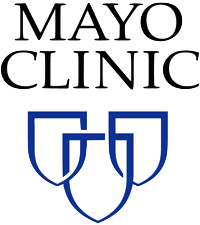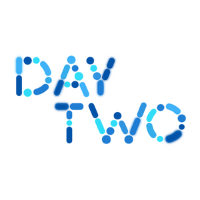by Brett Kinsler | Jun 11, 2017 | Conferences, Transitions of Care
 Much of the SI team will attend the Digital Rochester Transitions of Care program as president, Al Kinel, moderates a panel of community leaders. Discussions will center on improvement of handoffs between providers and organizations caring for patients.
Much of the SI team will attend the Digital Rochester Transitions of Care program as president, Al Kinel, moderates a panel of community leaders. Discussions will center on improvement of handoffs between providers and organizations caring for patients.
Digital Rochester and speakers from the Rochester RHIO, Monroe County Medical Society, Rochester Regional Health, FLPPS, and Lifetime Care discuss the types of care transitions occurring in our region, the current challenges, and the types of technologies, analytics, and data exchange we’re using, or will be using, to better facilitate the transitions. The panel shares how their organizations are measuring and preventing re-admissions to the hospital through innovative programs, technological tools, and enhanced communication and collaboration. The types of care transitions the panel will be analyzing are:
- Hospital to Primary Care Provider/Specialist
- Hospital to Post Acute Care
- Hospital to Home Care (or to home with Primary Care Provider/Specialist oversight)
- Post Acute Care to Home Care
Healthcare administrators and employees, and other community members who want to better understand how health care transitions occur in our community attend this event.
Panelists:
Chris Bell, Executive Director, Monroe County Medical Society
Nancy Horn, Vice President of Clinical Operations, Lifetime Care
Dr. Sahar Elezabi, Executive Medical Director, Finger Lakes PPS
Gloria Hitchcock, Director, Care Improvement Initiatives, Rochester RHIO
Mark Klyczek, Vice President of Long Term Care Division, Rochester Regional Health
Joey Rosario, Sr. Director, IT and Analytics, Finger Lakes PPS
Panel discussion moderated by:
Al Kinel, President, President, Strategic Interests
Tuesday, June 13, 2017 7:30am
Irondequoit Country Club — Rochester, NY
Event Calendar
by Brett Kinsler | Apr 11, 2017 | Transitions of Care
Strategic Interests has deep understanding about transitions of care and how they relate to information exchange. We have performed in depth research and analysis into the care transitions of several systems, crosswalked the information exchange against national and regional standards and identified for the systems where gaps exist.
For example, take the transition of care when a patient moves from Hospital discharge to LTPAC (nursing home). There are pieces of information that are not routinely exchanged during this transition — like baseline SPO2 (blood oxygen concentration). As a result, the nursing home may have insufficient information to make clinical decisions and might send the patient back to the hospital sooner than would be necessary if they had this data. But at the present time, there is no standard to send SPO2 to the nursing home upon discharge.
Other ways transitions of care break down are with the failure to capture social determinants of health. Let’s say a patient is discharged from the hospital with a prescription for a much needed medication but that patient does not have the means to get to the pharmacy from his rural area and whatever available money the patient has is going toward securing a stable housing situation for his family. Without knowing this information and putting in place safeguards to ensure the patient obtains the needed medication, that patient will likely backslide and wind up back in the hospital — a needless readmission for a condition that could have been easily managed and a readmission that should have been easily prevented.
This is where the connection between healthcare and innovative technology becomes so critical. Systems can be adapted, workflows altered and innovative changes implemented to dramatically improve care transitions, provide better quality, reduce costs and keep patients from needless escalation of treatment.
If your system needs this kind of thinking, strategy, and implementation, ask us — this is exactly the kind of situation we love to help with!
Check out the article below in which Strategic Interests president, Al Kinel, is quoted in the context of transitions of care.
http://www.healthcareitnews.com/news/see-technology-making-care-transitions-better
by Brett Kinsler | Feb 14, 2017 | Consulting
Partnership between CDI-Negev and Strategic Interests accelerates U.S. market penetration for Israeli health it start-ups
Pilots in Rochester and Johns Hopkins laying foundation for success
FEBRUARY 14, 2017, Rochester, NY & Tel Aviv, Israel – CDI-Negev, the Center for Digital Innovation, an Israel-based innovation center dedicated to supporting entrepreneurs develop health-related technologies and Strategic Interests, LLC (SI), a Rochester-NY based consulting firm helping stakeholders collaborate, improve care and enhance financial performance, teamed up to help several innovative Israeli healthcare IT start-up companies bring their solutions to the U.S.
“Strategic Interests is pleased to work with CDI-Negev to help their members determine the most appropriate segments for their solutions, find opportunities to demonstrate value with U.S. providers and payers, and develop and execute segment-specific market attack plans to succeed in the dynamic and growing U.S. healthcare marketplace” said Al Kinel, President of SI.
Ambassador Ido Aharoni, Global Distinguished Professor at NYU and Former Consul General of Israel in New York, played a key role in linking CDI with SI. “While the U.S. healthcare market is attractive to Israeli start-ups, it’s difficult to avoid costly missteps while navigating the complex environment,” stated Aharoni. “A partner such as SI can leverage experience and long-standing relationships to help Israeli health tech companies succeed here in the U.S. Al and I share the same desire to help accelerate one of Israel’s most precious exports and it’s exciting to see how he is bringing this to fruition.”
Transforming caregivers’ ability to remotely monitor patients suffering from chronic health conditions, SI connected Datos Health, a CDI mhealth company, with Rochester, NY-based Ridgeview Internal Medicine Group, LLP. In Datos’ first U.S. pilot, Ridgeview’s primary care physicians and care managers are remotely monitoring patients suffering from hypertension. The Datos platform enables caregivers access to clean, validated, Patient-Generated Health Data (PGHD) for use within their electronic medical record (EMR) and existing workflow, for improved disease management and outcomes, at a fraction of the current cost. The U.S project follows multiple pilot programs run by Datos monitoring diabetes and high blood pressure within long-term and post-acute care organizations in Israel.
To make the road to recovery more efficient, cost effective, and fun, Israel-based BG Ventures developed the BioGaming Artificial Intelligence-based platform to help patients accurately perform rehabilitation exercises using virtual trainers and games while monitoring their progress with pinpoint precision. Founded in 2016, BioGaming has been categorized as an FDA-approved medical device and is demonstrating success with users in US, Israel and Latin America, where a project at Johns Hopkins is proving current benefits and future promise.
“Process automation, in-clinic utilization and increasing adherence are the main goals in the world of physical therapy today” said Ken Johnson, Director, Rehabilitation Therapy Services Outreach of Johns Hopkins. “BioGaming’s platform digitizes physical therapy. By providing automatic assessments, an in-clinic virtual trainer application and a mobile app to easily manage and monitor patients’ process, BioGaming achieves efficient resource allocation for physical therapy clinics—reducing costs for clinics, providers and payers.”
“Each of our young companies has unique capabilities and needs,” stated Ziv Ofek, Founder and CEO of CDI and Founder of dbMotion. “Working with SI during the past 8 years, I am keenly aware of the depth and breadth of experience that Al’s team possesses to properly support our member companies on the road to commercial success—they are in good hands with SI.”
Additional CDI companies looking to SI for U.S. traction in 2017
As leaders in data science and artificial intelligence (AI), Israel’s most promising digital health startups provide real value in the existing clinical workflow through the introduction of new and more effective capabilities to increase accuracy and improve quality outcomes in less time. Here are a few companies to watch in 2017:
- Aidoc helps radiologists analyze imaging and clinical data more effectively to produce highly accurate scan anomaly detection.
- DiACardio provides FDA-cleared tools that fully automate the evaluation of medical imaging using a new image processing technology based on pattern recognition and machine learning.
- Healthy.io uses computer vision and artificial intelligence to turn embedded smartphone cameras into clinical grade medical devices and bring digitized core diagnostic tests from the lab into the hands of patients.
- Mediseen (A subsidiary of Teva Pharmaceutical Industries Ltd.) Developed DDI+, a cloud-based patient-specific decision support system for managing patient’s Drug Related Problems (DRP).
- Ziv Ofek’s startup, MDClone, introduces a new healthcare data paradigm with a big data platform unlike anything on the market today, unleashing the power of healthcare data for analysis with zero-risk to patient privacy.
About CDI-Negev:
CDI-Negev is a leading-edge, novel, non-profit innovation center located in Beer-Sheba, Israel— the growing ‘Silicon Valley’ of the Middle East. CDI works in the areas of digital healthcare, social welfare, with a focus on healthy aging, education and smart cities. In partnership with Ben-Gurion University, CDI brings together start-up companies, experienced entrepreneurs, innovators, researchers in the public sector and investors with a personalized support system and a dedicated network of industry thought leaders committed to overcoming barriers for global success.
Visit www.cdi-negev.com for more information.
For PR & Media Inquiries: Lital Shnaiderman | lital@cdi-negev.com | +972 (58) 621-7014
About Strategic Interests:
Strategic Interests (SI) offers advisory and implementation services to help healthcare stakeholders collaborate, improve care and enhance financial performance. As trusted experts in transformation, SI combines vision, deep technological understanding and innovative thinking to each customized, pragmatic client engagement. Using our proven framework, our team of results-oriented, experienced thought-leaders—each with years of experience in various areas of healthcare including management, clinical, analytical, technical, and marketing—delivers on the specific needs of each project, ensuring our clients’ objectives are met and their expectations are exceeded.
Visit www.strategicinterests.com for more information.
For PR & Media Inquiries: Kate Kolbrener | kkolbrener@strategicinterests.com | 412-310-0617
by Brett Kinsler | Jan 12, 2017 | Consulting, Electronic Health Records, innovation, Interoperability
 When it comes to EHR (electronic health records) improvement projects cited among healthcare organiation executives, the plan to improve connectivity with other systems topped plans for 2017. According to Healthcare IT News’ recent survey of 96 respondents, sixty percent of those polled are planning or are already in the midst of an interoperability initiative. Most of these projects (65%) involve connecting to external databases or health information exchanges (HIE).
When it comes to EHR (electronic health records) improvement projects cited among healthcare organiation executives, the plan to improve connectivity with other systems topped plans for 2017. According to Healthcare IT News’ recent survey of 96 respondents, sixty percent of those polled are planning or are already in the midst of an interoperability initiative. Most of these projects (65%) involve connecting to external databases or health information exchanges (HIE).
These executives recognize that there can be challenges to interoperability, listing the lack of industry standards, EHR vendors themselves, the “culture of hoarding,” and financial concerns.
“The Year Ahead in Health IT” survey also identified emerging technologies many organizations had plans to invest in this year. This included prescriptive analytics, artificial intelligence, genomic tools and machine learning, cognitive computing, and blockchain.
Where is your organization on the path to interoperability and leveraging technology to improve quality of care, save costs and become more efficient? A seasoned healthcare technology consulting firm can be your guide to strategy, design and implementation while helping you navigate the tricky areas of vendor management and balancing internal change management.
Source: http://www.healthcareitnews.com/slideshow/survey-results-look-ahead-healthcare-it-2017?page=1
by Brett Kinsler | Dec 26, 2016 | innovation


Though we focus on helping Payers, Providers, RHIOs, and NGOs, Strategic Interests often finds we are in a position to provide strategic consulting to innovative healthcare technology companies. One of our favorites is DayTwo, a startup from Israel that is using microbiome technology to predict which foods will raise a person’s blood glucose and which will not. Did you know this differs for each person? Can you imaging having a list of the foods that are better for your personal nutrition based on your individual gut makeup? Many people think this is simple — eat an apple, not a doughnut. But it’s not as simple as that when you are comparing an apple to an orange. Or beer to wine. Or pretzels to chips. And these choices do make a difference in blood sugar response. DayTwo’s analytics are based on excellent research from the Weizmann Institute of Science in Israel and take the complicated test result data and yield an easy to use interface for patients and providers to apply the personalized nutrition information.
When DayTwo wanted to bring their technology to the United States, they asked Strategic Interests to help them set up a pilot program at a prestigious medical institution. We could think of no better choice than the Mayo Clinic. SI worked to make the introductions and facilitated a successful arrangement between these two innovative organizations.
http://www.prweb.com/releases/2016/12/prweb13917085.htm
 Much of the SI team will attend the Digital Rochester Transitions of Care program as president, Al Kinel, moderates a panel of community leaders. Discussions will center on improvement of handoffs between providers and organizations caring for patients.
Much of the SI team will attend the Digital Rochester Transitions of Care program as president, Al Kinel, moderates a panel of community leaders. Discussions will center on improvement of handoffs between providers and organizations caring for patients.
 When it comes to EHR (electronic health records) improvement projects cited among healthcare organiation executives, the plan to improve connectivity with other systems topped plans for 2017. According to Healthcare IT News’ recent survey of 96 respondents, sixty percent of those polled are planning or are already in the midst of an interoperability initiative. Most of these projects (65%) involve connecting to external databases or health information exchanges (HIE).
When it comes to EHR (electronic health records) improvement projects cited among healthcare organiation executives, the plan to improve connectivity with other systems topped plans for 2017. According to Healthcare IT News’ recent survey of 96 respondents, sixty percent of those polled are planning or are already in the midst of an interoperability initiative. Most of these projects (65%) involve connecting to external databases or health information exchanges (HIE).

Recent Comments